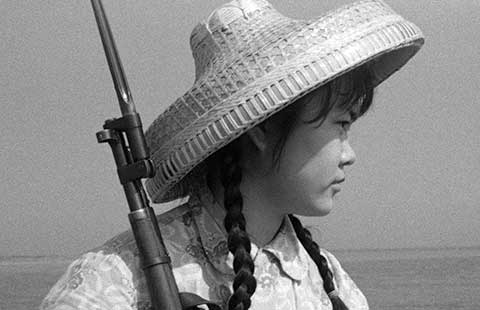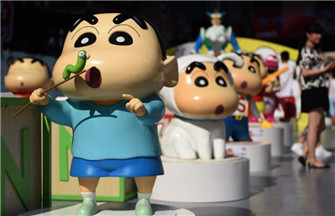China Voice: Copycat, Chinese film industry's growing pains
( Xinhua ) Updated: 2015-07-13 10:36:32The director's denial has left people in more doubts: Can he explain why a Chinese character of the film title is blocked in the poster with the image of a tire? Is this an intentional design to confuse the audience with the five-character Chinese title of the "Cars"?
The title of the Chinese movie is qi-che-ren-zong-dong-yuan, one character more than the Chinese title of the "Cars" which is qi-che-zong-dong-yuan. In the poster, the extra character "ren" is blocked, making it appear more or less look like the "Cars."
While the director has reason to contend that it is possible for two directors and scriptwriters have similar ideas, isn't it strange that the poster designers for the two films also share similar or even identical views?
Some Chinese movie producers tend to believe that no matter how poor their production, movie-goers will still go see it, and thus they can make easy profits.
They do not treat movies as a piece of work, but as a printing machine for quick money. Their "confidence" partly stems from China's booming market.
As of the end of May, China had 28,000 cinema screens. The United States has 40,000 and the number has remained almost unchanged for years.
Experts believe that it's only a matter of time before China surpasses the United States to become the world's largest movie market.
But those who want to profit from the booming market must remember - with the help of the Internet and other technologies, Chinese people, especially the young, who are a major target of the film industry, have far more choices and channels to watch world-class movies.
Chinese audience can tolerate the fact that there is still a long way to go for Chinese movie producers to catch up with their foreign counterparts and some Chinese films are not as good as western ones on an artistic level, but what they will never accept is the unprofessional attitude of some Chinese producers and their poorly-made movies. No movie-goer wants to feel fooled.
"The Autobots" is being screened as Chinese students are on summer holiday, a period when few foreign movies are being shown in cinemas. As an unwritten rule, such measures for domestic film protection are necessary for China's growing but still fledgling film industry.
But the measures cannot protect poorly-made productions from criticism. After all, the Chinese movie industry has to grow up. Imitation might be the first step, but blatant copycats only provide embarrassment.
Related:
|
|
|
|
|
|






















 Raymond Zhou:
Raymond Zhou: Pauline D Loh:
Pauline D Loh: Hot Pot
Hot Pot Eco China
Eco China China Dream
China Dream China Face
China Face





